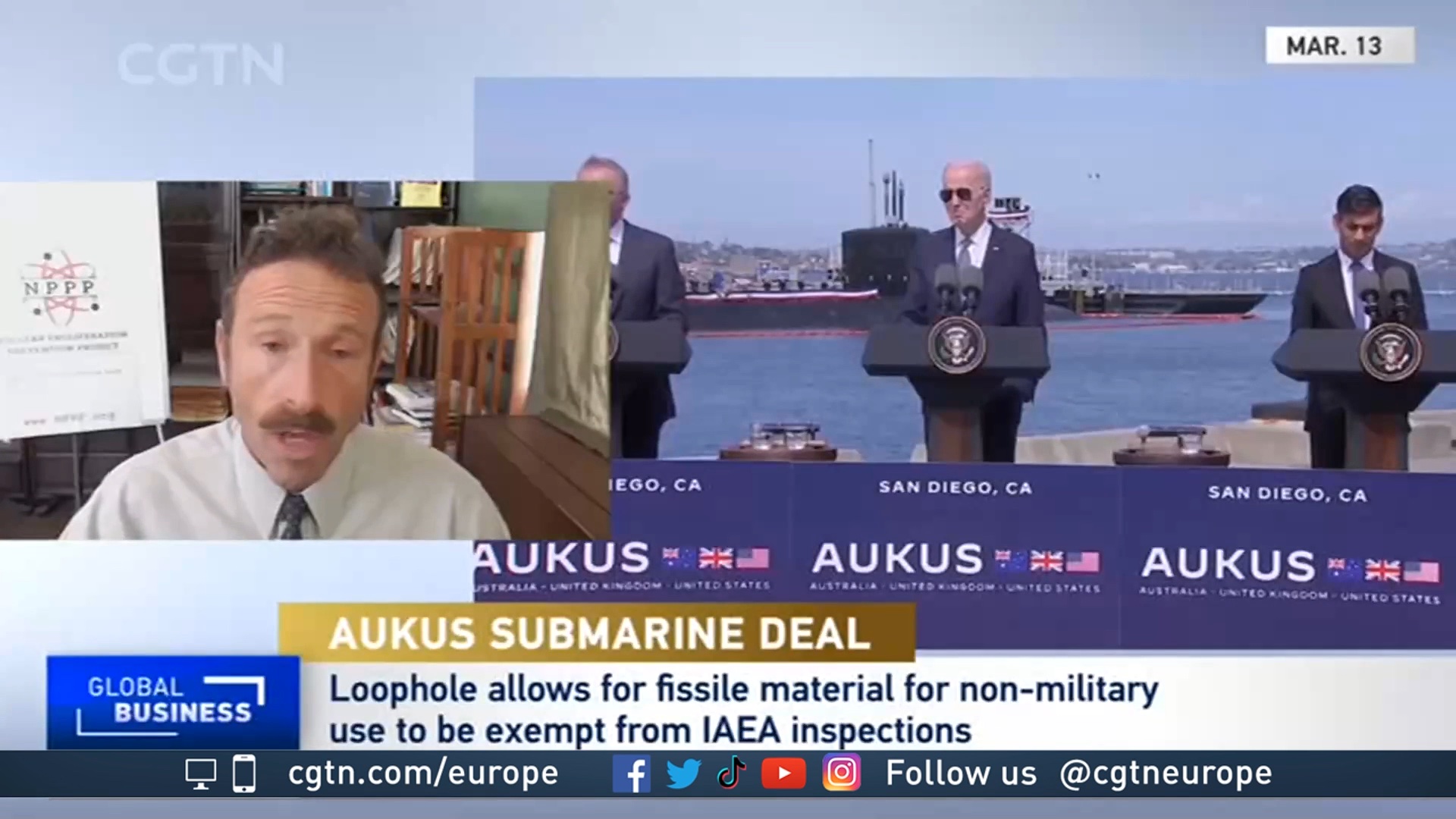06:34

A leading expert on nuclear proliferation fears that the new AUKUS submarine deal between Australia, the UK and the U.S. could potentially be exploited by terrorists.
The new project was unveiled when the U.S. President Joe Biden, UK Prime Minister Rishi Sunak and Australian PM Anthony Albanese met in San Diego on Tuesday.
The plans will see Australia purchase U.S. nuclear-powered Virginia-class submarines before joint British and Australian production and operation of a new submarine class, SSN-AUKUS. It will be the first time nuclear states have sent highly enriched uranium – used in submarine propulsion, but also potentially in the development of weapons – to a non-nuclear state.
READ MORE
What is the AUKUS deal?
Inside the UK's nuclear fusion plant
Italy's growing ageing problem
The deal has been met with concern from across the world since its announcement, with the IAEA saying the three countries involved "have safeguards obligations which need to be implemented in accordance with their respective safeguards agreements and additional protocols with the Agency."
The IAEA added in a statement: "The legal obligations of the parties and the non-proliferation aspects are paramount. The agency will continue to have its verification and non-proliferation mandate as its core guiding principle. It will exercise it in an impartial, objective and technical manner."

The deal was announced by Australian PM Anthony Albanese, U.S. President Joe Biden and UK PM Rishi Sunak. /Leah Millis /Reuters
The deal was announced by Australian PM Anthony Albanese, U.S. President Joe Biden and UK PM Rishi Sunak. /Leah Millis /Reuters
Another worried observer is Alan Kuperman, a professor at the University of Texas at Austin and the founding coordinator of the Nuclear Proliferation Prevention Project.
Kuperman worries that the exemption on the transfer of highly enriched unanium will provide a precedent for countries to skate around the nuclear non-proliferation treaty.
"The worst-case scenario would be that countries around the world say, 'For 50 years the world said that it's illegitimate to use highly enriched uranium. But now the U.S. and UK and Australia have undermined that norm. And so now we're all going to produce our own highly enriched uranium – and there's nothing you can say about it because you'd be hypocrites,'" he told CGTN.
"So what we'll see is lots of countries following what Iran is doing and making enrichment plans. And you know what? The world is not going to bomb all of those plants, and it's not going to impose Iran-like sanctions on all of those countries."

Alan Kuperman says the new AUKUS deal could be exploited by terrorists. /CGTN
Alan Kuperman says the new AUKUS deal could be exploited by terrorists. /CGTN
The fear is that the highly-enriched nuclear material used in submarine propulsion can also be used to make weaponry – so any normalization of its distribution is a security risk.
"What we'll get is widespread availability of nuclear weapons-grade uranium, which will potentially lead not only to countries acquiring nuclear weapons, but potentially terrorists stealing some of that material.
"You only need something like 100 pounds [45kg] for a terrorist to make a nuclear weapon. But Australia will have 10,000 pounds [4,500kg] or more of such uranium – and a country can make a nuclear weapon using higher technology from only 20 pounds [90kg] of of highly enriched uranium.
"So that's the worst-case scenario and I hope Australian, U.S. and EU and UK leaders will think about that and take the prudent course."
Subscribe to Storyboard: A weekly newsletter bringing you the best of CGTN every Friday